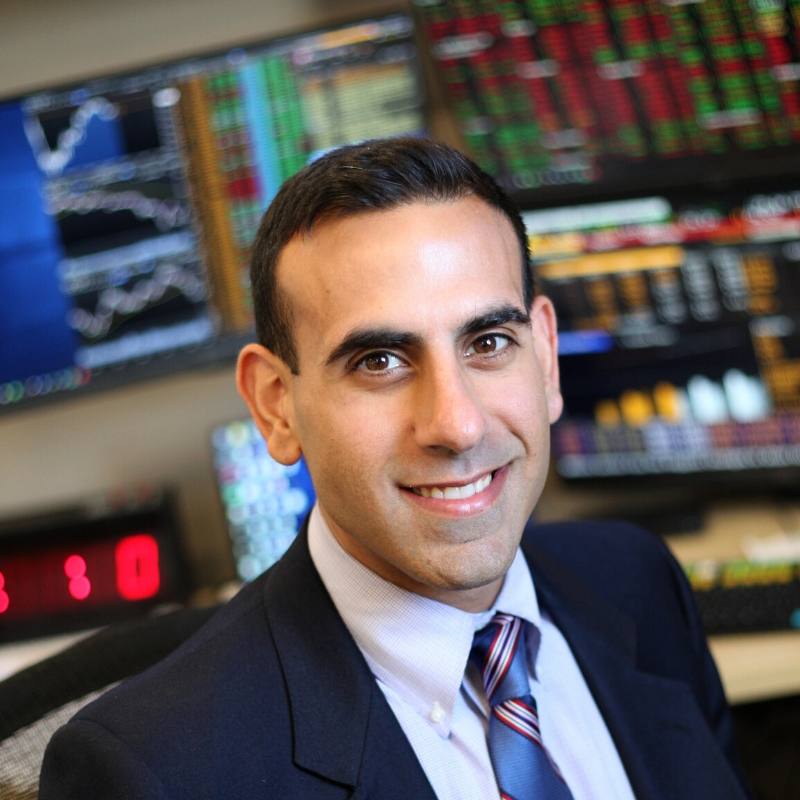
This week in the financial media, there have been many articles and stories written about the 10th anniversary of the financial crisis of 2008. The bankruptcy of Lehman Brothers, sale of Bear Sterns to JP Morgan and the near collapse of the U.S. financial system were all very scary and taught us a lot of lessons. I was just getting started “in the business” during this time and I remember watching on TV the House of Representatives voting down the initial $700 billion bailout bill (which would later be passed). I won’t forget seeing the Dow Jones Industrial Average plunge hundreds of points in just a matter of minutes after the first failed vote. This was a very difficult time as many people lost their jobs, saw their retirement account values decline dramatically and most importantly, shook the confidence of many.
The after effects of the financial crisis are still felt today as people remain worried about when “the next shoe will drop” so to speak. I’ve had more conversations with clients and individuals about
how to protect their assets rather than how much more they can grow their portfolio. I don’t know when the sentiment will shift but it will probably take longer than we think to erase the memories of what happened. Losses sting a lot more than the joy of gains do and sentiment today isn’t near where it was in 2007 or the 2000 tech bubble. Frankly, I think this is a bullish sign for stock investors although I don’t have a crystal ball as to how long this current bull market will last.Hindsight is always 20/20 and it’s easier to say you should’ve invested in the stock market during this time. Heck, even Warren Buffett wrote an op-ed in the Wall Street Journal in October 2008 saying he was buying U.S. stocks (this was after a 31% decline in the S&P 500 index). One would think that if the greatest investor in history was buying stocks after a 31% decline, that the market would listen but this wasn’t the case. The S&P 500 fell another 27% after Buffett’s op-ed and the market finally bottomed in March 2009. This illustrates how bad the environment was for stock investors and that no one knew exactly when the declines would end.
One group of investors that were negatively impacted by what happened in 2008 are the Millennial generation. Millennials are defined as those between the ages of 22-37. I am 30 years old, so I fall into this cohort although I don’t have a beard or eat a lot of avocado toast. They were likely to be working, in school or just about to enter the workforce during the 2008 financial crisis so they probably experienced how difficult it was to find a job or get a raise. A few months ago, Vanguard published a study in which they examined 4 million client accounts and some of the results are surprising:
- The percentage of Millennials with 100% equity portfolios fell from 32% in 2012 to 19% in 2017. With time, improved employment prospects and a rising equity market at their back, equity exposure fell over this 5-year span. Contrast this with the Silent generation (those born between 1925-1945) who only saw a drop of 1% of 100% equity portfolios during the same time. One would think that the oldest group of investors, who likely are no longer working and need their portfolios to sustain themselves in retirement would further reduce risk over time, but this was not the case. An explanation for this could also be that health costs have increased and low interest rates (which hurts savers) have been at historical lows, thus they needed aggressive portfolios to maintain their lifestyles.
- In 2017, 19% of Millennial portfolios had 0% equity exposure, this highest amongst all generations (includes Gen X, Baby boomers and the Silent generation). Millennials should be the most aggressive of any generation since they have the most time to make up potential losses and the power of compounding on their side. What was even more astonishing was that the percentage of 0% equity portfolios increased from 2012 (it was 13% then). 2012 was right around the time that the S&P 500 index was reaching pre-crisis levels. It seems as if Millennials were either scared that another crash was coming or thought they were “late to the party”.
- In the periods before 2007, the median balance of Millennial household accounts declined from $24,000 to $11,000 in 2008 and onwards. Simply put, the median amount investors started with declined by 54% in the years after 2008. This is probably because investors saw the huge stock market losses and avoided investing in equities (usually this is the best time to invest). Another reason I believe this amount is lower because the Millennial generation faces record amounts of student loan debt and higher health care costs. It is difficult to save when you can barely keep up with the cost of living and servicing student loan debt on top of it.
I am not a psychologist, but major financial shocks like 2008 will have long lasting effects on any generation. Compare the drawdown of the stock market during the 2008 financial crisis (about 57%) to that of the Great Depression (86%, not a typo) and peak unemployment (25% vs. 10% in 2008). Now you have yourself a recipe for a scarred generation of investors, and rightfully so. My former boss told me a story of his own father who was re-writing his trust documents later in his life. He grew up during the Great Depression and like almost every American at that time, was not doing well financially. While he was signing these new trust documents, he began to cry and he said, “I was poor once and I never want to be poor again.” Now, contrast this with someone who was born in the 1970s who got to experience one of the greatest expansions in stock market history. I think their attitudes towards saving, wealth and risk would be different.
I don’t want to speak for my peers, but I think my generation does not relate well to the “go-go years” of the 1960s or of the 1980’s-1990’s (these were times of robust economic growth and strong stock market gains). Thus, while the results from the Vanguard study don’t seem to make sense on the surface, I certainly sympathize. It doesn’t surprise me when I read a study that said 84% of Millennials don’t like or trust traditional advertising, which is mostly done by some of the largest and most recognized companies in the world. If your only experience was to see two massive drawdowns in the stock market in 2000 and 2007-2008, large scale fraud (think Bernie Madoff, Enron and WorldCom) and multiple bank failures, I wouldn’t blame them for their lack of trust in large corporations or the markets.
I ask myself, what can be done to create more confidence and trust so that everyone has an opportunity for optimal asset allocations and savings? Employers need to do a better job of simplifying, encouraging and automating the retirement enrollment process. Think of all the paperwork, fund option, asset allocation and withholding decisions that need to be made to set-up a 401(k) or retirement account. Making this process simple and easy to understand for employees would go a long way to encourage both saving and investing. If employees had a better understanding, maybe it would inspire more trust and they would be more comfortable participating in the equity markets? Lastly, automatically enrolling your employees into retirement plans, (but giving them the option to opt out) would probably boost and encourage saving.
Our industry needs to do a better job of educating and asking people the right questions on the most basic concepts of saving, budgeting and asset allocation. How much should I be saving? What is the best asset allocation for me currently? How much risk can I tolerate? How much do I need to save for retirement? These are just some of the questions that we need to help answer. As an RIA, we don’t sell products or hot stocks; our focus has been on asking and answering the right questions. Achieving the needs and goals of our clients is our primary objective. Working with someone who is transparent, sets the right expectations, understands your financial situation/plan, has your best interests in mind and has the right incentives will go a long way to engender confidence and comfort. If we can accomplish this, then we will help heal some the psychological scars of 2008 and hopefully have a better financial future for all. To end, I think of the famous quote from economist Larry Summers when he said, “Confidence is the cheapest form of stimulus.”


